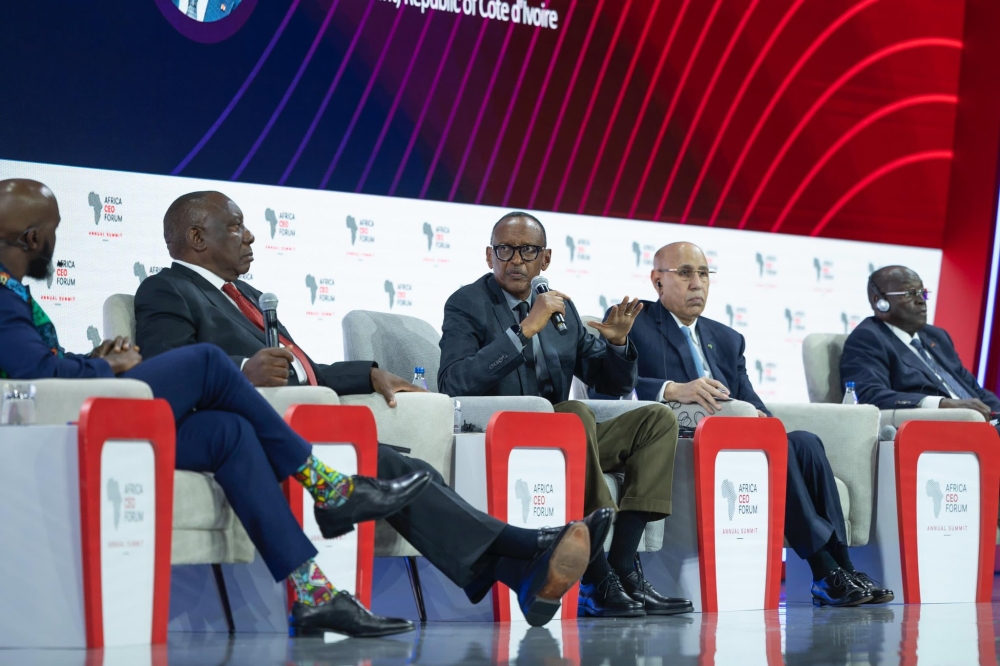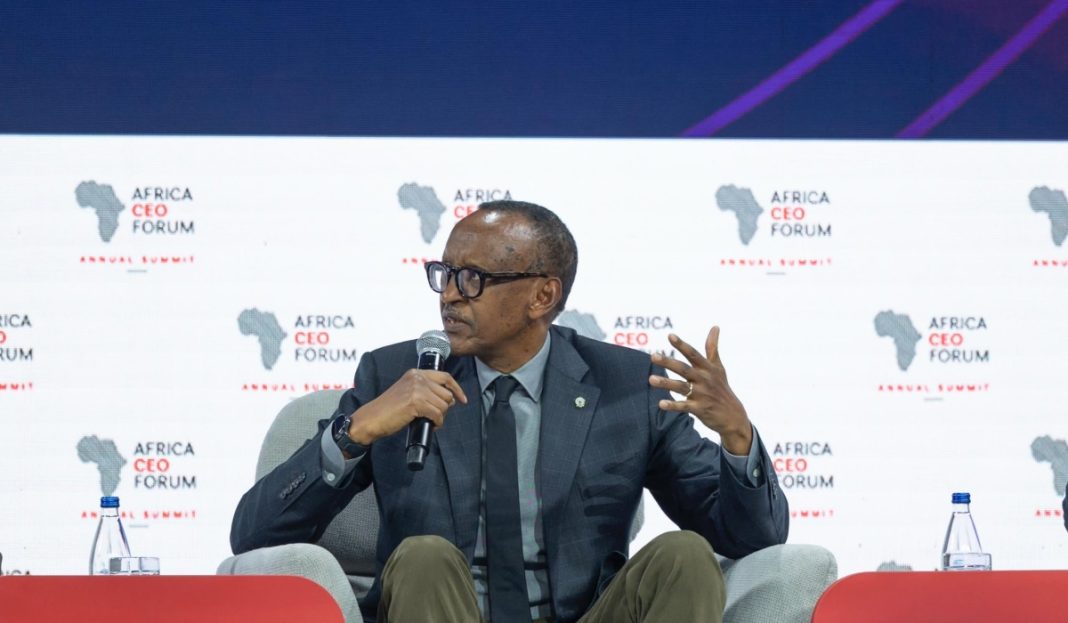President Paul Kagame said that the mediation efforts by Qatar and the United States designed to achieve peace in eastern DR Congo are an acknowledged necessity, adding that Africa needs to actively play its own part in finding solutions to African problems
He was speaking on a high-level panel discussion on policies, practices, and personalities fit for a new world order at the opening of the Africa CEO Forum, on May 12, in Abidjan, Côte d’Ivoire.
The annual forum, which began on Monday under the theme “Africa in a Transactional World: Can a New Deal between State and Private Sector Deliver the Continent a Winning Hand?”, has drawn more than 2,000 business leaders, investors, and policymakers from across Africa and around the world.
Qatar and the US have played a role in shaping a new direction for the situation in eastern DR Congo towards peace, besides African-led efforts, including through the now-merged Nairobi process and Luanda process.

The latest developments entail a peace agreement expected to be inked by President Kagame and his Congolese counterpart Félix Tshisekedi, with US President Donald Trump in attendance at the White House, in June.
“There are several efforts going on at the same time…whether it’s Qatar or the US, we can’t say we have succeeded, everyone is trying,” Kagame said.
Under Qatar’s mediation, Kinshasa has also recently begun talks with the AFC/M23 movement, a group which Tshisekedi had previously refused to talk to branding them terrorists.
Asked to comment on the ongoing effort to reform the African Union with a view to making it more effective and relevant, Kagame said that progress had been made over the years, highlighting that Africans had generally rallied around this effort, “defining things, and increasingly speaking with one voice”.
“Most of these developments that have been happening in the last decade are reminders that there are things we need to do that we haven’t done,” he said, giving an example of how the African Union was able to put in place a peace and security facility to reduce its dependence on external funders.
Additionally, the Rwandan leader noted that there had been progress despite the ongoing “trouble spots” in different areas, in terms of peace and security, some of which succeed and others fail.
He welcomed positive contributions from external players in supporting the continent to move forward, but warned that African must take full ownership and responsibility of their future.
“In any case, even if we are able to do things by ourselves, we still have to bring in partners who have what to offer,” he said. “But, we have to define which direction to take as Africa and not be entirely dependent on what these people are contributing.”
Speaking on the same panel, President Cyril Ramaphosa of South Africa said that peace efforts that have been underway on the continent, including the Nairobi and Luanda processes, had been very essential in building the foundation of peacemaking and confidence.
He said that whatever contributions other actors from outside Africa can make were important, but in the end “we must remember the principle of African solutions to African problems.”
“We have a deep responsibility that peace does indeed prevail, and what [the parties to the conflict] are doing with Qatar and the US is part of the peacebuilding process, but it is inherently African,” said the South African leader, referring to the situation in DR Congo.
Ramaphosa added that he has been having discussions with Kagame, having each other on “speed dial”, and encouraged stakeholders to focus on the collaboration to achieve a peace process on the continent.
South Africa, along with Tanzania and Malawi, had deployed troops in eastern DR Congo under the Southern African Development Community (SADC) banner, and the the bloc is currently withdrawing its personnel and equipment, through Rwanda, after the areas in which it had been deployed the force to bolster Kinshasa’s fight against the AFC/M23 were captured by the rebels earlier this year, including the key eastern city of Goma.
In addition to the envisaged peace deal to expected be signed next month, Rwanda and DR Congo are due to sign separate bilateral economic agreements with the US government.
Before the peace agreement is signed, the US has emphasised that both parties must first meet several preconditions.
Among them, DR Congo must fully address internal security challenges and Rwanda’s security concerns, including disbanding the genocidal FDLR.
In addition, DR Congo is expected to implement internal governance reforms, including ensuring fair distribution of national resources across its regions.
On April 25, Rwandan and Congolese foreign ministers signed the Declaration of Principles, marking the beginning of a peace process aimed at restoring stability not only to eastern DRC but also to the broader Great Lakes region, which has long suffered from the spill-over of the conflict.
In the declaration, both sides reaffirmed their respect for each other’s sovereignty and territorial integrity and committed to resolving disputes through diplomacy and dialogue.



